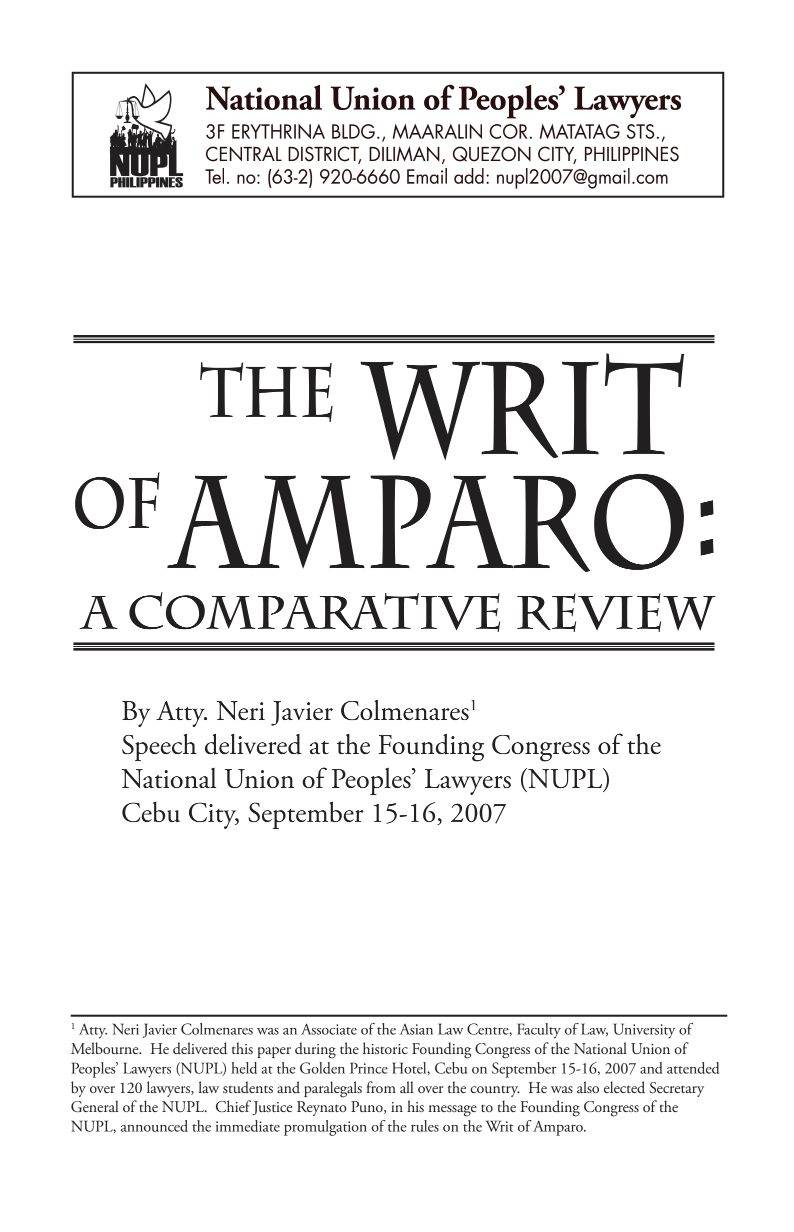The recent Consultative Summit on Extrajudicial Killings and Enforced disappearance organized by the Supreme Court highlighted legal concepts that are “alien”2 to Philippine jurisprudence. Concepts like the writ of amparo, command responsibility and subsequently, the writ of habeas data were entertained as possible legal tools that may be useful in solving the escalating number of cases involving extra judicial killings and enforced disappearances that have plagued the country for many years.
Whether or not these legal procedures will help alleviate the human rights condition in the country remains to be seen. Much depend not merely on the provisions of the “amparo rule” that the Supreme Court has promulgated, but on the judicial will to implement these rules in the face of a recalcitrant executive department. This paper will attempt to give a general description of the concepts, hoping that it will stimulate discussion among legal practitioners and contribute to the efforts in the promotion, protection and defense of human rights in the country through the creative use of the rules.
